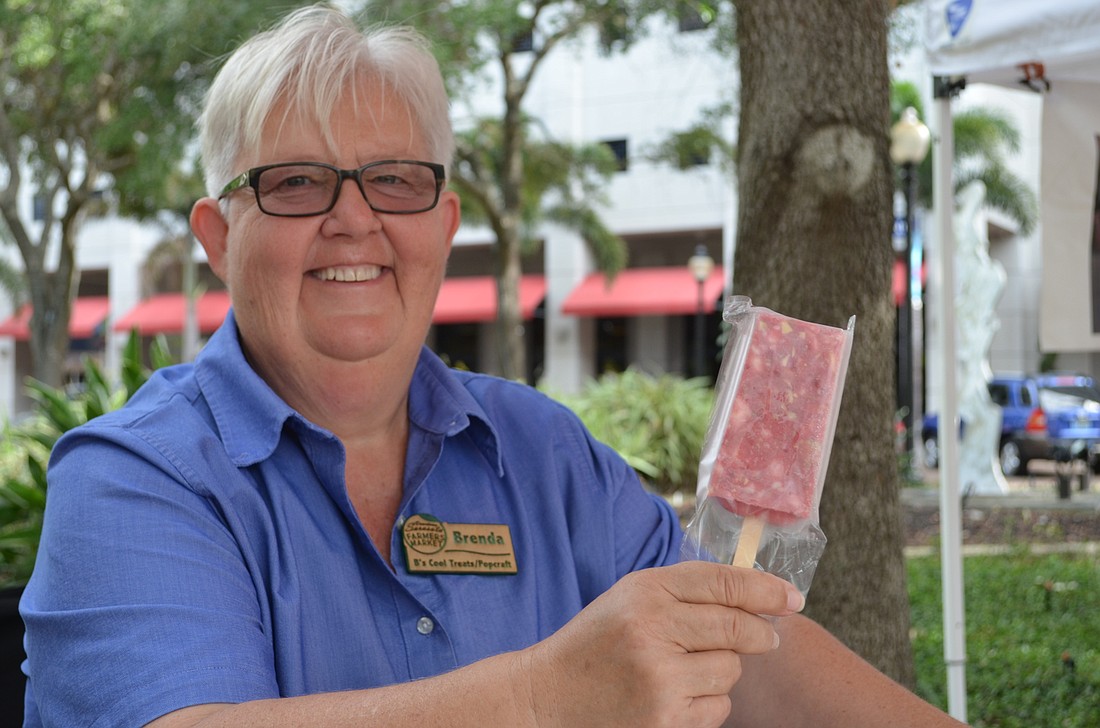- April 19, 2024
-
-
Loading

Loading

City Commissioner Hagen Brody was distraught to discover children in Sarasota neighborhoods don’t have an opportunity to buy sweet treats from ice cream trucks driving past their homes in the summer.
Brody learned this last month after getting in contact with Eric Garfield, owner of the Baltimore Snowball Factor. Garfield’s business, which sells frozen desserts, operates out of a van after closing its brick-and-mortar location in 2016.
Brody heard Garfield had some issues operating in the city. The commissioner figured the solution would be straightforward —just a matter of finding the right permit. Instead, he found out the city does not allow ice cream trucks to operate in residential neighborhoods.
Furthermore, the city’s regulations on vendors operating in the public right of way tie permits to specific locations. That functionally prohibits the business model most people associate with ice cream trucks, driving throughout an area and making sales at various points along the route.
“I think that kind of a ban is ridiculous and frankly un-American,” Brody said. “The idea we have kids in this community that aren’t growing up with the experience of visiting the ice cream truck is ludicrous to me.”
Brody pledged to reverse those regulations, asking staff to prepare a new ordinance enabling ice cream trucks to do business in the city. The item is set for discussion at Monday’s City Commission meeting. Material included with Monday’s agenda shows that Brody isn’t the first person to make ice cream truck operations a hot-button issue.
Beginning in 1999 and continuing through 2002, the commission held at least four different discussions pertaining to ice cream truck regulations. Tim Litchet, the city’s director of neighborhood and development services, remembers residents and officials expressing concern about safety as they ultimately decided to uphold the regulations in place today.
“Safety in two ways: the safety of kids in the streets, and then questions of who’s operating the vehicles themselves,” Litchet said.
Linda Holland, president of the Gillespie Park Neighborhood Association, is one of the residents who feared the ice cream trucks could create problems in residential areas during the early 2000s discussion. She said the neighborhood hasn’t revisited the topic in a long time and said attitudes may have changed as new people have moved into the area.
She isn’t steadfastly opposed to the prospects of ice cream trucks, but she said the fears about safety were legitimate.
“It’s a hard thing, because you know the kids love it — especially in the summer time, they want ice cream or a popsicle or something like that,” Holland said. “But I know when we had this issue before, several people in the neighborhood saw issues where kids ran from behind the trucks and they just didn’t bother to look both ways.”
Garfield declined to comment in detail about how the city’s regulations affected his business. He did say that, when he operates out of the truck, he’s focused on ensuring he’s doing so responsibly.
“The safety of my young customers is the top priority,” Garfield said.
Other Sarasota ice cream vendors are excited by the prospect of change. Brenda Zook is the owner of B’s Cool Treats. The truck sells its goods at events, Zook said — a product of the city’s regulations.
“It’s always kind of been hard that I live in the city and pay city taxes, but I’m not allowed to work in the city,” Zook said.
Zook said she might consider selling in neighborhoods if she were allowed. She knows other ice cream truck owners in the area would be happy to expand into the city. Right now, they’re limited to the county, where ice cream trucks are permitted to operate in residential areas.
“The bottom line for me is, if it’s safe enough for the county’s kids, it’s safe enough for the city kids,” Zook said.
A county spokesperson said the county has not had any issues related to ice cream trucks.
Brody is hopeful the city can adopt similar regulations quickly. He acknowledges it might seem like a minor issue, but he thinks the current rules send a bad message about the prospect of doing business in the city.
And, on a simpler note, he isn’t happy about the idea of depriving children of an opportunity to buy ice cream.
“I, quite frankly, can’t imagine living in a community that doesn’t allow ice cream trucks for neighborhood kids,” Brody said.